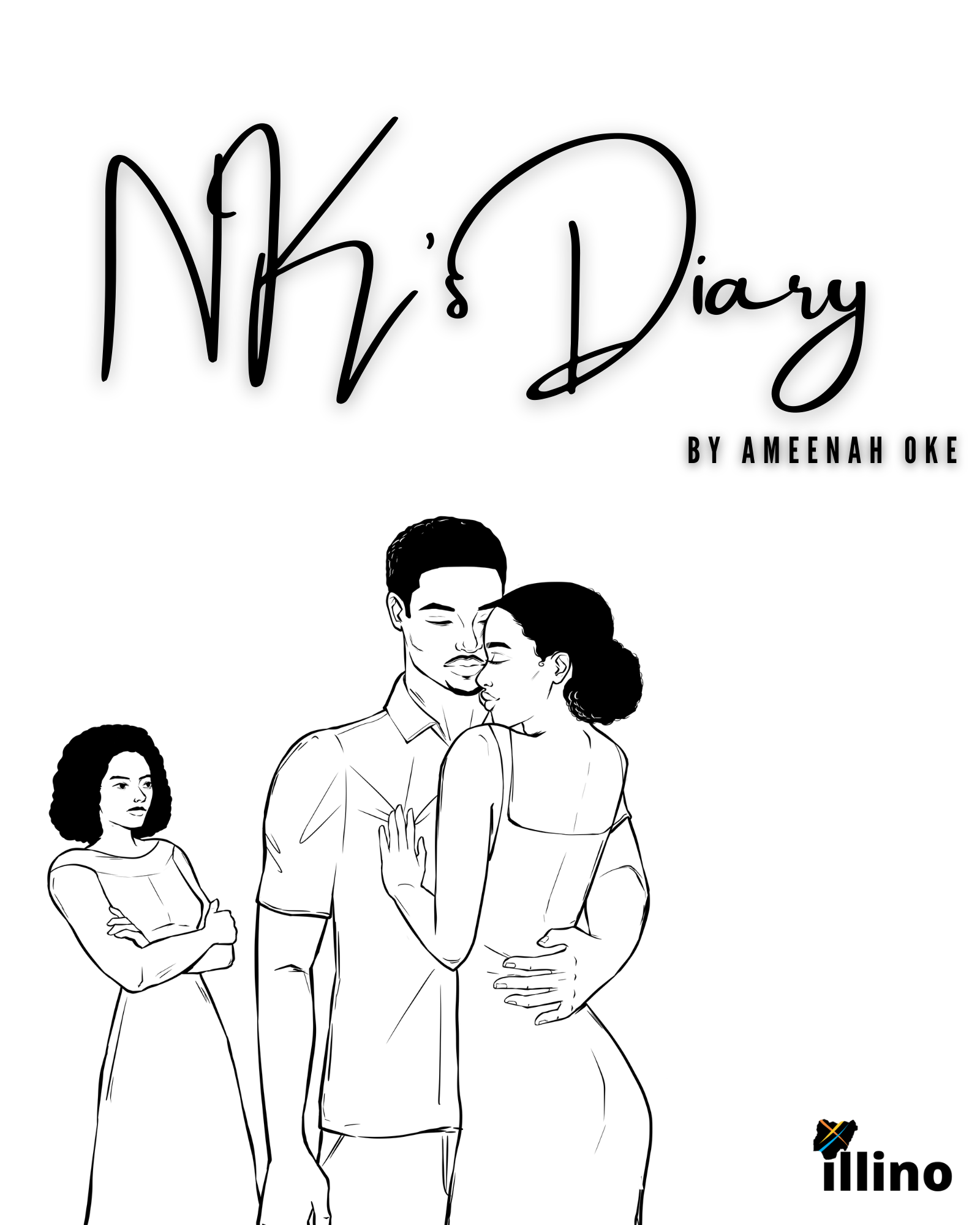Echoes of October, 7, 1967
The night after the first raid, while waiting for my father to return, my mother asked me to turn off the oil lamp.
"We can never tell when they might come," she whispered, gently patting the younger children to sleep. I could feel my heartbeat in my throat.
After that, we both sat in silence, repeating desperate prayers in our hearts. There was not much to pray for, but for the safety of our father and for us to see the break of dawn. My hands trembled like leaves in the wind, my grip on the rosary so tight that my knuckles ached.
The past two days had been a horror for us. The previous day, the sound of machine guns had beaten the cocks' crow as our alarm clock. The village had been thrown into immediate disarray. The men had no time to think of how to protect their families, the women had no time to hide their children, and the children had no time to rub sleep away from their eyes. The Nigerian federal troops had come guns blazing, and death was meeting people at their doorsteps uninvited. They entered houses, dragged the inhabitants out, and shot them. There was no time for last words, pleas, or defenses.
I could hear the soldiers hurling insults, branding innocent villagers as ‘bloody Biafrans’ before pulling the trigger. The air was thick with the stench of gunpowder and fear. And even in the midst of such horror, I couldn't shake the chilling realisation that this might just be the beginning of our ordeal.
We lived at the end of the village, so we had little time to seek refuge. We all fled into a nearby bush, lying flat on our stomachs with prayers and curses on our lips. My younger siblings were terrified, but my mother had asked them to close their eyes and keep quiet, or they could be killed.
War did not discriminate—it craved blood, whether that of an infant or an adult. We stayed there until evening, ignoring the pangs of hunger and the itches on our skin, knowing that any sound or movement could betray our presence. In times like this, silence was the only way to stay alive.
"I think it's safe to come out now," my father said, gradually rising to one knee and peeking through the tall grasses that hid us. His voice was filled with a mix of hope and dread.
"There's no such thing as safety in a world of war," my mother whispered, tears glistening in her eyes.
My father stood up and tiptoed out of the bushes, his eyes darting back and forth as he searched for any sign of the soldiers. When he saw no soldiers or guns in sight, he beckoned to us to come out. We all crawled out, me first, then the little children, and my mother. We walked slowly back home, occasionally stopping at any suspicious sound. On the way, we saw three dead bodies, and the children clung tightly to the hem of my mother's loose wrapper. It nearly slipped from her waist, and she reached out to tie it properly.
"It's okay," she said, her voice quivering.
The civil war had done something to us. It made us both afraid and fearless, both cautious and nonchalant. We had seen so many corpses that we were no longer scared, yet we were afraid because we knew that we could be the next corpse to be prayed for, waved at, left to rot, or simply forgotten because we were never found.
We were careful about our lives, but when it came to running for safety, not everyone could care about their neighbour or even family. Women with babies strapped to their backs could fling them away just to survive.
That night, sleep eluded me as I lay restless in my bed, the weight of uncertainty pressing down on my chest like a leaden blanket. Thoughts raced through my mind, each one more haunting than the last. I couldn't shake the images of the massacres that had ravaged our neighbouring villages. I remembered the stories I had heard of the atrocities committed by the Nigerian federal troops in places like Umuahia and Nsukka. The mere mention of those names sent shivers down my spine, for I knew that our fate hung precariously in the balance, teetering on the edge of a precipice from which there might be no return. Life had become a cruel and unforgiving journey since the civil war began. As I lay there in the darkness, I couldn't help but wonder what the future held for my people. I did not know how close we were to death or freedom.
Word spread that the town leaders would meet the next night to discuss how to end the violence. They chose a hidden location near our house, the safest part of the village.
The next day, we woke up to the sound of distant gunfire. We knew that the soldiers had returned, but we hoped that the attack would be brief. We huddled together in the corner of our hut, listening to the sound of the bullets whizzing through the air.
As the gunfire got closer, we knew that we had to get out. My mother hurriedly gathered us, her hands trembling with fear and urgency, I instinctively took the lead, guiding my younger siblings towards the bush where we had hidden the day before. With each step, I checked over my shoulder, ensuring we weren't being followed, my senses heightened by the imminent danger. When we arrived at our hiding place, I motioned for my siblings to crouch low and stay silent, while I positioned myself at the edge of our hiding spot, scanning the surroundings for any signs of threat. We weren't the only ones. Villagers all over the village fled to their hiding places.
The soldiers' raid that day was brief, but it was deadly. Many people were killed, especially men and boys. My father was able to join us in the bush before the soldiers arrived, but we knew that we weren't safe. The soldiers could come back at any time.
As we all returned to their homes, some limping from injuries and others simply exhausted, we knew we needed to make a decision quickly. The meeting started earlier than planned, and my father attended.
This was why my mother and I were waiting anxiously. We knew that the decisions made that night would be crucial to the future of our village. We also knew that the soldiers were likely to be patrolling the streets, so my father might be in danger.
As we sat in silence, peering into nothingness, we heard a faint knock. We remained silent and alert, remembering my father had said he would knock twice. The knock sounded again, and I lit the lamp while my mother rushed to open the door slowly.
"Welcome! What did they say?" she asked without letting my father sit down.
"Hmmm, please get me water first," he instructed.
I dashed to get it, while my father began speaking.
"We have decided to assemble in the open square at Ogbe-Osowa tomorrow mor..."
"Ah! Are we presenting ourselves as lambs for slaughter to these people who are all out to kill us? How can we use our legs to walk into death? Whose idea was this?" my mother cut in.
"Woman, keep quiet and let me finish!" He took the cup of water I had placed beside his foot and gulped it down.
"You see, emmmm, it may not be the best idea, but we have no choice now. We cannot keep running for our lives, and there is no assurance that the raid will stop. Do you know how many of our men died yesterday? Our village is fast becoming a vast cemetery. So the plan is to come out, all of us, and then we will chant 'One Nigeria' to show that we are part of them. We believe this can buy us compassion at least. We are all exhausted."
"How sure are you that this would work?"
"Since the war began, I have not been sure of anything, not my life, and not the end of the bloodshed. I cannot give you any assurance. We are in the hands of God now. Also, we are wearing our akwa ocha tomorrow. I need to rest." He stood up and went straight to the bedroom.
The next morning, hundreds of us in Asaba—men, women, and even children, mostly dressed in white—marched to the open square at Ogbe-Osowa village in an attempt to keep the peace. We danced, sang, and chanted 'One Nigeria' as we marched. The federal troops saw us approaching but did not budge. The leaders in front urged us to continue chanting, thinking that perhaps if we chanted 'One Nigeria' loud enough, the resentment in the hearts of the federal troops would crumble like the walls of Jericho.
At a junction leading to the open square, the men and boys decided to separate from women and children to be at the forefront of the march. I joined them. The federal troops watched as we performed, and the commander whispered to his men. They nodded.
“What do you think they are saying?” I overheard one man ask another.
“Maybe they want to address us,” he said.
The soldiers joined the chant, and when we saw this, joy erupted among us. We increased the tempo, but in a swift moment, we were interrupted by flying bullets—the federal troops had opened fire.
The crowd dispersed, with everyone running in different directions as fast as our legs could carry us, but the bullets were faster. A man dropped dead, a woman dropped dead beside him too with her toddler clung to her chest, and so did another, and another, until the streets were littered with corpses.
I couldn't find my parents, but I was running home to meet my siblings who were probably hiding under the bed as instructed. I felt a hit before I heard the sound; it was a bullet. I fell to the ground, pain coursing through my body. My eyes were still open, but I couldn't see anything. The world around me blurred into darkness.
As I lay there, unable to move, a flood of emotions washed over me. I thought of my family, of my mother's gentle voice, and my father's determination. I longed for the safety of our home, the warmth of their embraces, and the sound of my siblings' laughter. But amid the chaos and violence, those feelings seemed distant, like fading memories of a life that once was.
The screaming and gunfire continued around me. My breaths grew shallow, and I knew that my life was slipping away. In those final moments, I clung to the hope that at least, I wouldn't have to endure any more horrors of this bloody war. Death, in times like this, was peace. Oluchi died with his eyes open.










